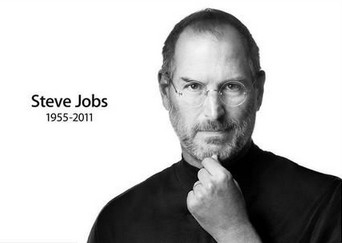Reed College
里德學(xué)院
Seventeen years earlier, Jobs’s parents had made a pledge when they adopted him: He would go to college. So they had worked hard and saved dutifully for his college fund, which was modest but adequate by the time he graduated. But Jobs, becoming ever more willful, did not make it easy. At first he toyed with not going to college at all. “I think I might have headed to New York if I didn’t go to college,” he recalled, musing on how different his world—and perhaps all of ours—might have been if he had chosen that path. When his parents pushed him to go to college, he responded in a passive-aggressive way. He did not consider state schools, such as Berkeley, where Woz then was, despite the fact that they were more affordable. Nor did he look at Stanford, just up the road and likely to offer a scholarship. “The kids who went to Stanford, they already knew what they wanted to do,” he said. “They weren’t really artistic. I wanted something that was more artistic and interesting.”
17年前,喬布斯的父母領(lǐng)養(yǎng)他的時(shí)候曾經(jīng)作過保證:他一定會(huì)上大學(xué)。所以他們一直努力工作,為他的大學(xué)專款省吃儉用,等到喬布斯高中畢業(yè)時(shí),這筆專款雖不多,但也足夠他上大學(xué)的費(fèi)用了。但越來越任性的喬布斯把這件事變得很艱難。一開始,他根本就不想讀大學(xué)。“如果我沒有讀大學(xué)的話,我應(yīng)該會(huì)直接去紐約。”他回憶說,一邊思考著如果當(dāng)年選擇了那條道路,自己的世界——也許是我們所有人的世界——會(huì)有怎樣的不同。當(dāng)他的父母堅(jiān)持要他上大學(xué)時(shí),他以一種被動(dòng)而富有侵略性的態(tài)度進(jìn)行了回應(yīng)。他不考慮州立學(xué),比如當(dāng)時(shí)沃茲就讀的伯克利,盡管州立大學(xué)的學(xué)費(fèi)更加親民。他也不想去斯坦福,盡管就在家旁邊,而且可能會(huì)給他提供獎(jiǎng)學(xué)金。“去念斯坦福的人,他們已經(jīng)知道自己想要什么了,”他說,“他們一點(diǎn)兒藝術(shù)性都沒有。我想要上的是更富有藝術(shù)性的、更有趣的學(xué)校。”
Instead he insisted on applying only to Reed College, a private liberal arts school in Portland, Oregon, that was one of the most expensive in the nation. He was visiting Woz at Berkeley when his father called to say an acceptance letter had arrived from Reed, and he tried to talk Steve out of going there. So did his mother. It was far more than they could afford, they said. But their son responded with an ultimatum: If he couldn’t go to Reed, he wouldn’t go anywhere. They relented, as usual.
 他堅(jiān)持唯一的一個(gè)選項(xiàng)是里德學(xué)院,位于俄勒閃州波特蘭市的一所私立文理學(xué)院,也是全美最貴的大學(xué)之一。他在伯克利看望沃茲的時(shí)候接到了父親的電話,被告知里德學(xué)院的錄取通知書到了,同時(shí)父親還試圖勸說史蒂夫不要去那里,母親也勸他。他們說,里德的學(xué)費(fèi)太高了,根本不是他們所能承受的。但他們的兒子下了最后通牒:如果他不能去里德學(xué)院的話,那么他就哪兒都不去。如往常一樣,父母又一次妥協(xié)了。
他堅(jiān)持唯一的一個(gè)選項(xiàng)是里德學(xué)院,位于俄勒閃州波特蘭市的一所私立文理學(xué)院,也是全美最貴的大學(xué)之一。他在伯克利看望沃茲的時(shí)候接到了父親的電話,被告知里德學(xué)院的錄取通知書到了,同時(shí)父親還試圖勸說史蒂夫不要去那里,母親也勸他。他們說,里德的學(xué)費(fèi)太高了,根本不是他們所能承受的。但他們的兒子下了最后通牒:如果他不能去里德學(xué)院的話,那么他就哪兒都不去。如往常一樣,父母又一次妥協(xié)了。
Reed had only one thousand students, half the number at Homestead High. It was known for its free-spirited hippie lifestyle, which combined somewhat uneasily with its rigorous academic standards and core curriculum. Five years earlier Timothy Leary, the guru of psychedelic enlightenment, had sat cross-legged at the Reed College commons while on his League for Spiritual Discovery (LSD) college tour, during which he exhorted his listeners, “Like every great religion of the past we seek to find the divinity within. . . . These ancient goals we define in the metaphor of the present—turn on, tune in, drop out.” Many of Reed’s students took all three of those injunctions seriously; the dropout rate during the 1970s was more than one-third.
里德的在校生只有1000人,規(guī)模只有家園高中的一半。學(xué)校以自由精神及嬉皮士生活方式著稱,與這樣一種生活方式并存的是學(xué)校嚴(yán)格的學(xué)術(shù)準(zhǔn)及核心課程。5年前,迷幻啟蒙運(yùn)動(dòng)的領(lǐng)袖蒂莫西·利里(TimothyLeary)在他的“精神探索聯(lián)盟”高校之旅中,曾經(jīng)盤腿坐在里德學(xué)院的草地上,大聲呼喊:“就如同過去所有我們?cè)谄渲袑ふ疑裥缘膫ゴ笞诮桃粯印切┕爬系哪繕?biāo)都隱喻著現(xiàn)在——打開心扉、自問心源、脫離塵世(Turnon,tunein,dropout)。”許多里德學(xué)院的學(xué)生把這三條吿誡奉為座右銘,學(xué)校在20世紀(jì)70年代的退學(xué)率超過了1/3。
When it came time for Jobs to matriculate in the fall of 1972, his parents drove him up to Portland, but in another small act of rebellion he refused to let them come on campus. In fact he refrained from even saying good-bye or thanks. He recounted the moment later with uncharacteristic regret:
1972年,喬布斯要開學(xué)了,他的父母開車帶他來到了波特蘭。但他又做出了叛逆的舉動(dòng):拒絕父母送他進(jìn)校園。事實(shí)上,他甚至連“再見”和“謝謝”都沒有說。后來他回想這件事的時(shí)候,充滿了愧疚:
It’s one of the things in life I really feel ashamed about. I was not very sensitive, and I hurt their feelings. I shouldn’t have. They had done so much to make sure I could go there, but I just didn’t want them around. I didn’t want anyone to know I had parents. I wanted to be like an orphan who had bummed around the country on trains and just arrived out of nowhere, with no roots, no connections, no background.
這是一生中真正讓我覺得羞愧的一件事。我當(dāng)時(shí)不夠體貼,傷害了他們的感情。我不該那么做的。他們?yōu)榱四茏屛胰ツ莾鹤x書竭盡全力,但我就是不愿意他們?cè)谖疑磉叀N也幌胱屓魏稳酥牢矣懈改浮N揖拖胂駛€(gè)搭火車四處流浪的孤兒一樣,突然出現(xiàn)在校園,沒有根,沒有與外界的聯(lián)系,也沒有背景故事。
In late 1972, there was a fundamental shift happening in American campus life. The nation’s involvement in the Vietnam War, and the draft that accompanied it, was winding down. Political activism at colleges receded and in many late-night dorm conversations was replaced by an interest in pathways to personal fulfillment. Jobs found himself deeply influenced by a variety of books on spirituality and enlightenment, most notably Be Here Now, a guide to meditation and the wonders of psychedelic drugs by Baba Ram Dass, born Richard Alpert. “It was profound,” Jobs said. “It transformed me and many of my friends.”
1972年下半年,喬布斯來到里德學(xué)院的時(shí)候,美國的校園生活發(fā)生了根本性的轉(zhuǎn)變。美國對(duì)越南的戰(zhàn)爭(zhēng),以及隨之而來的征兵熱潮,都在逐漸平息。校園中的政治激進(jìn)主義漸漸消退,許多宿舍的臥談會(huì)主題都已換成對(duì)自我實(shí)現(xiàn)的興趣。喬布斯深受一系列關(guān)于精神和啟蒙的書籍影響,尤其是《此時(shí)此地》(BeHereNow),這是一本介紹冥想及致幻劑的美妙之處的書,作者是拉姆·達(dá)斯導(dǎo)師(BabaRamDass),本名叫理查德·阿爾拍特(RichardAlpert)。“這本書意義深遠(yuǎn),”喬布斯說,“它改造了我和很多朋友。”
The closest of those friends was another wispy-bearded freshman named Daniel Kottke, who met Jobs a week after they arrived at Reed and shared his interest in Zen, Dylan, and acid. Kottke, from a wealthy New York suburb, was smart but low-octane, with a sweet flower-child demeanor made even mellower by his interest in Buddhism. That spiritual quest had caused him to eschew material possessions, but he was nonetheless impressed by Jobs’s tape deck. “Steve had a TEAC reel-to-reel and massive quantities of Dylan bootlegs,” Kottke recalled. “He was both really cool and high-tech.”
這幫朋友里和喬布斯最親密的是一個(gè)留著稀疏胡子的大一新生:丹尼爾·科特基(DanielKottke),他是在抵達(dá)里德學(xué)院一周后見到喬布斯的,和喬布斯一樣喜歡佛教禪宗、迪倫和迷幻藥。來自紐約一個(gè)富人區(qū)的科特基聰明又溫和,對(duì)佛教的興趣讓他那花童一般的行為舉止顯得更加柔和。精神上的探索讓他不再追求物質(zhì)享受,盡管如此,他還是對(duì)喬布斯的錄音座印象深刻。“史蒂夫有一臺(tái)TEAC牌雙卷盤錄音設(shè)備,還有大量迪倫的錄音帶,”科特基回憶說,“他真的很酷,又科技感十足。”











